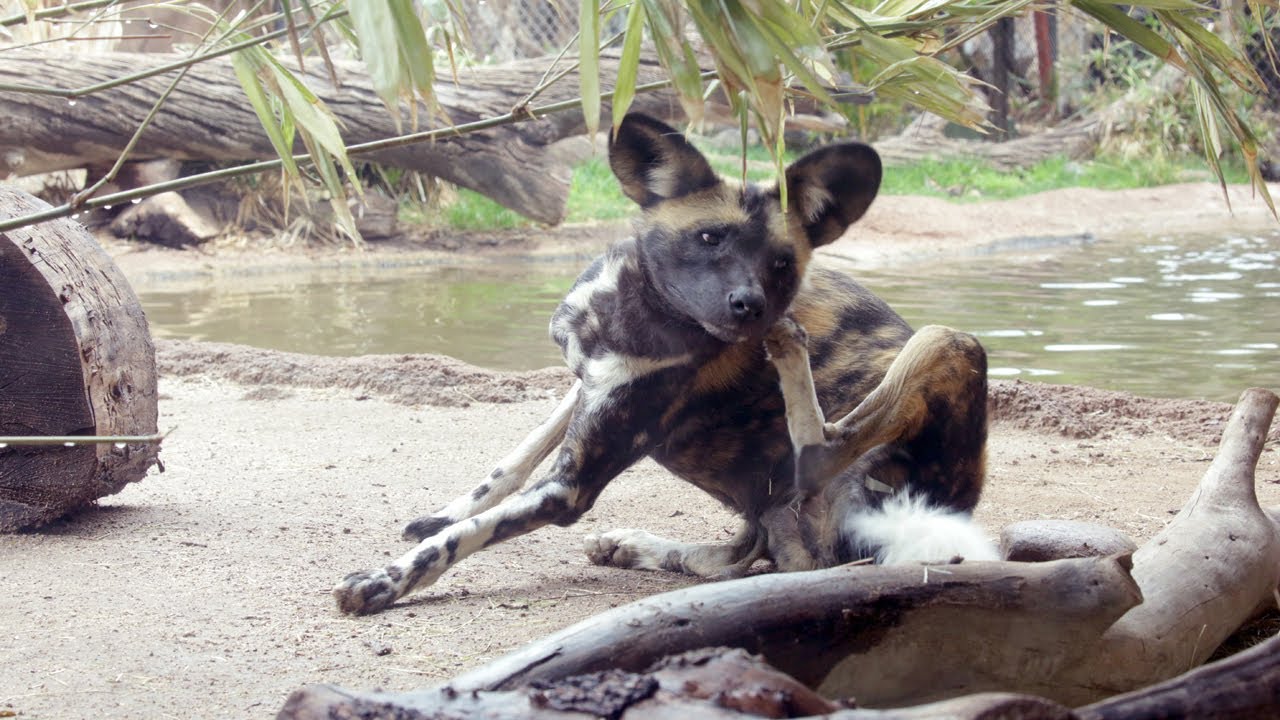– Discover the social dynamics of African wild dogs and their extraordinary teamwork during hunts.
– Learn how communication and role distribution among pack members lead to their successful hunting strategies.
– Explore the unique characteristics and behaviors that make African wild dogs fascinating and effective predators.
African wild dogs, also known as painted wolves or Cape hunting dogs, are one of the most enigmatic and misunderstood species roaming the vast savannas and woodlands of sub-Saharan Africa. Despite facing numerous threats, these canids are noteworthy for their exceptional sociability, intricate communication systems, and collaborative hunting tactics. I had the incredible opportunity to chat with Dustin, a passionate teen volunteer who has spent time observing these captivating creatures. Through his eyes, let’s delve into the world of African wild dogs and discover what makes them such successful predators.
### The Power of the Pack
The foundation of the African wild dogs’ success lies in their pack. Dustin explained how each pack forms a tight-knit family group, usually led by a dominant breeding pair. The members are incredibly cooperative, sharing responsibilities from rearing pups to attending to the ill or elderly. But it’s when they hunt that this cooperation truly shines.
African wild dogs hunt in formidable, synchronized packs, where each member plays a crucial role. They embody the essence of “teamwork makes the dream work.” Dustin shared fascinating accounts of how they perform almost like a well-oiled machine. The pack spreads out in a fan-like formation to cover more ground and flush out prey while certain members take up strategic positions. When a target is identified, they work in unison to isolate and pursue the animal, using incredible speed and stamina that few can match.
### Communication Breakdown
Dustin emphasized that communication is the glue that holds the pack’s hunting strategy together. These dogs are conversational virtuosos, employing an elaborate assortment of whines, chirps, huffs, barks, and howls that paint an acoustic picture of their intentions and surroundings. These sounds serve as the threads weaving the pack into a cohesive unit, especially during the chaos of a chase. What struck me as Dustin recounted his observations was the intensity of the dogs’ focus; their ears perked up, tuning into every subtle nuance of their packmates’ signal; their communication goes beyond the auditory; African wild dogs also use body language and scent-marking to convey messages. The alpha pair, for instance, can communicate their reproductive status through scent, which helps to maintain order and reproductive cohesion within the pack.
### A Hunter’s Physique
Observing the dogs’ sleek frames and keen senses, Dustin was quick to point out that these animals are built for the hunt. Their lean, muscular bodies are designed for endurance, allowing them to run at high speeds for extended periods – an adaptation paramount to outlasting fleet-footed prey such as antelopes. Their large, rounded ears capture every whisper of the wind and dissipate heat, keeping them cool during heated pursuits.
Moreover, the African wild dog’s mottled coat of yellows, whites, blacks, and browns isn’t just for show. Dustin described with an evident sense of awe how this disruptive coloration acts as a natural camouflage, breaking up their outlines in the woodland’s dappled light or the grasslands’ wavy heat.
### Social Ecosystem Architects
In our conversation, Dustin emphasized the ecological impact of these predators, calling them “ecosystem architects.” Their hunting behaviors can regulate prey populations and thereby maintain a balanced ecosystem. But he also shared a hard truth: African wild dogs are endangered, their numbers dwindling due to habitat loss, human conflict, and disease. Through his words, I could feel a deep respect for these canines and a clear call to action to conserve their species and habitats.
### The Human-Wild Dog Parallel
The more Dustin spoke, the clearer that humans could learn a lot from these intelligent, cooperative creatures. He drew parallels between their social dynamics and the best aspects of human collaboration – sharing duties, communicating effectively, and supporting one another. It was a profound reminder that we share this planet with remarkable beings who mirror some of our finest traits.
As our dialogues came to an end, I realized that Dustin’s dedication went beyond mere fascination. For him, and for those of us who take the time to learn, African wild dogs represent more than an effective hunting pack; they symbolize resilience, the importance of community, and the wonders that coordinated efforts can achieve.
### Final Thoughts
Conversing with Dustin, it becomes clear that these diligent teen volunteers aren’t just casual observers. They’re guardians of knowledge, bridging the gap between the misunderstood and the marveled. Whether you’re a novice naturalist, seasoned wildlife enthusiast, or somewhere in between, the story of the African wild dog is a testament to the intricacies of nature and the enduring spirit of life on Earth.
African wild dogs teach us that in unity, there’s strength, and in understanding, there’s hope. As we navigate the complexities of our own lives, we’d do well to remember the lessons from Dustin’s painted wolves—intelligent, communicative creatures that thrive on cooperation and mutual respect. Their existence is not only a marvel of the natural world but a profound narrative that speaks volumes about cooperation, adaptation, and the sheer will to survive.
So the next time you peer into the wilderness, either physically or through stories like Dustin’s, take a moment to appreciate the symphony of life that plays out before us—the relentlessness of the predator, the swiftness of the prey, and the delicate balance that sustains them both. For in every chase, in every triumphant howl, and in every gathered pack, lies a tale of life’s unending dance—a dance we’re all a part of, in one form or another.
*****
Source Description
Catch up with teen volunteer Dustin as he digs into why African wild dogs are so effective when they hunt as a pack!

